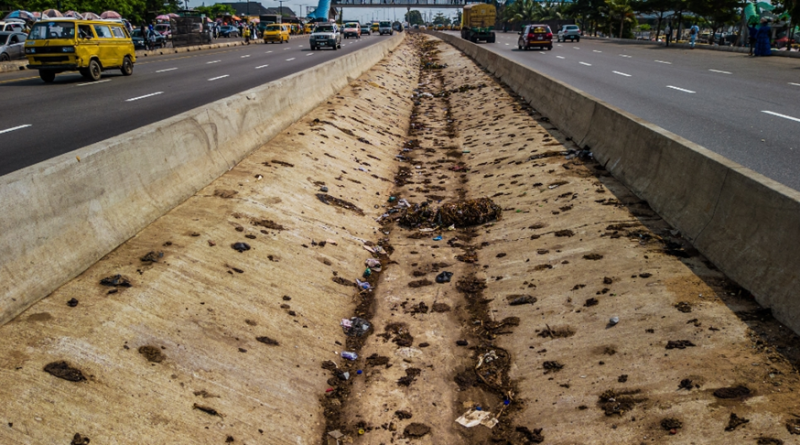Open Defecation: Menace on The ‘Gateway’
For anyone coming into Ogun and Lagos or leaving both cities through Lagos-Ibadan Expressway, one thing is very common to see especially– the sorry state of the highway median.
This time, it is not because of the quality of work on the major highway into Nigeria’s commercial capital but what the median has suddenly become.
It is very pathetic one indeed! It is looming health risk and an environmental shame caused by human beings who have turned the median into comfort zones for open defecation, leading to health and environmental concerns.
Read also: Oyo govt, World Bank partner to end open defecation
What is open defecation? It is a condition where human faeces are disposed of in fields, forests, open bodies of water, beaches or other open spaces or disposed with solid waste. In this case it is happen inside the highway median. These faeces are later flushed by rain flood into the river which overflows into homes nearby homes with its health risks.
Economically, Ogun State is a major industrial hub with a growing base of factories and companies, especially along the Lagos–Ibadan Expressway corridor.

Likewise, Lagos State is the economic powerhouse and commercial capital of Nigeria, home to its largest city and a major financial hub.
Open defecation is a significant problem in Ogun and Lagos, driven by a lack of accessible and affordable toilet facilities, especially in motor parks, slums, and other public spaces.
This practice poses serious health risks, leading to the spread of diseases like cholera and typhoid, and also degrades the environment.
While the Lagos State government is addressing this issue through a multi-pronged approach including constructing new public toilets, implementing enforcement measures, and conducting public awareness campaigns, the risk has shifted to Ogun where the menace of open defecation happens uninterrupted.
Every vigilant commuter knows that this act of open defecation happens 24 hours along the Lagos-Ibadan expressway, particularly from popular Berger bus stop median to OPIC U-turn and beyond. Before Lagos action against open defecation on this axis, the significance of the problem along the Lagos-Ibadan Expressway was evident in a 7.8 km stretch reportedly affected.

Unicef report included Nigeria among the nations in the world with the highest number of people practicing open defecation, estimated at over 46 million people.
The practice has had a negative effect on the populace, especially children, in the areas of health and education and had contributed to the country’s failure to meet the MDG target.
Though the Federal Government has committed to end open defecation in the country by 2025 which is in line with the revised global target set by the United Nations, but the act along Ogun-Lagos axis still calls for concern.
Unicef report said if Nigeria has to be open-defecation-free by 2025, 102 million additional people have to have access to a latrine.
Read also: Open defecation, others linked to diarrhoea in 3.5m Nigerian children
Health risks of open defecation…
Open defecation contaminates water, soil, and food with fecal pathogens, leading to outbreaks of waterborne diseases like cholera, typhoid, and dysentery. It can cause intestinal worm infections, which lead to nutrient loss and can weaken the immune system. Children are especially vulnerable. The resulting infections and nutrient loss can lead to a vicious cycle of poor appetite, weakened immunity, and malnutrition, causing increased mortality in children under five. Open defecation can also lead to other medical issues like hepatitis B and respiratory diseases, as well as maternal complications during pregnancy.
The defecation pressure moves to Ogun…
Inline image
The boundary between Lagos and Ogun provides the answers to how those using the median for defecation reacted to Lagos action against this menace. They moved into Ogun axis to continue their act. Why because Lagos State deployed anti-open defecation squads and enforcement teams to stop open defecation, which includes prosecuting offenders and cleaning up littered areas. The state also builds public toilets, training operators, and conducting public awareness campaigns to encourage sanitation and prevent the spread of diseases.

